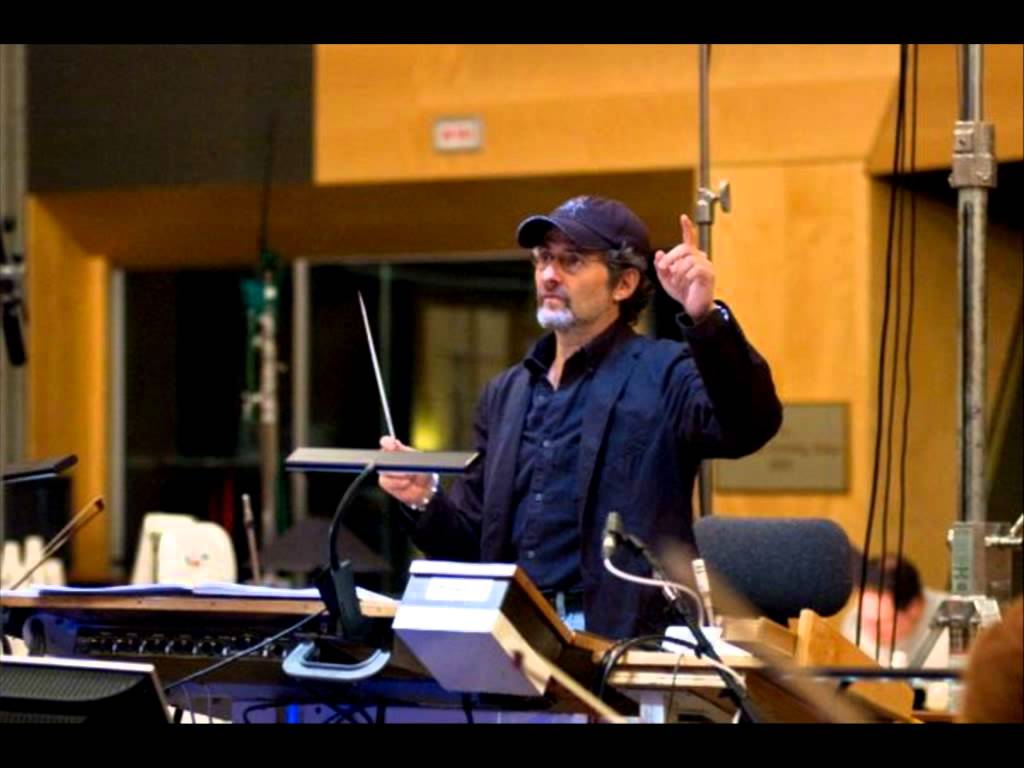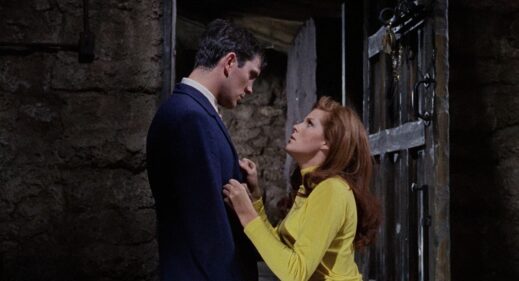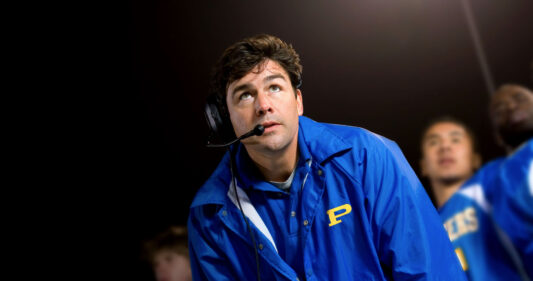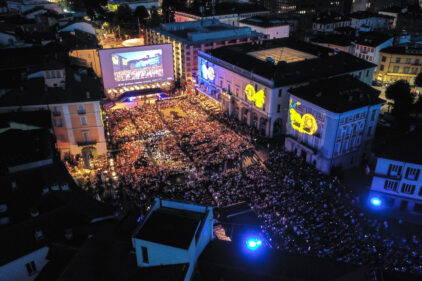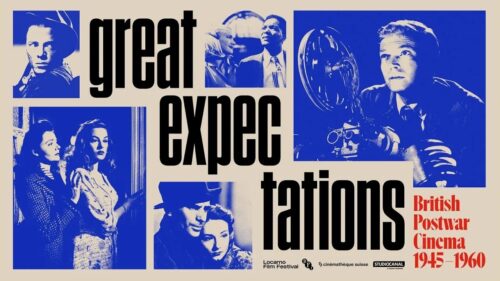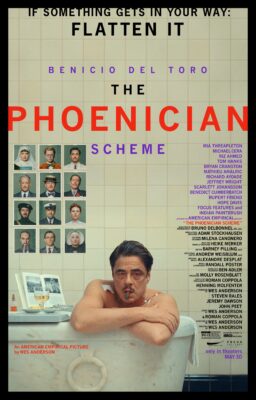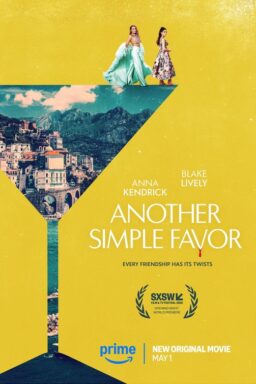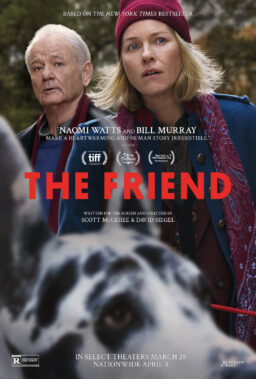When news broke that the great film
composer James Horner had died, some of my friends on film Twitter started reminiscing about their
favorite Horner-scored movies. S.I. Rosenbaum, a journalist and movie
fan, discussed Horner’s work with such specificity that I asked if she would
join me in a conversation about him. She agreed. Excerpts are below. You can follow SI on Twitter here.—MZS
Matt
Zoller Seitz: I don’t think I realized how much
James Horner’s music meant to me until word broke last night that he had died
in a plane crash at 61. He wrote some of the great action film scores — my
favorites are probably “48 Hrs,” “Star Trek II: The Wrath of Khan” and “Star
Trek III: The Search for Spock,” “Aliens,” two Jack Ryan movies, and “Titanic.”
But he was equally good at conveying wonder, or a sense of discovery. Terrence
Malick didn’t use much of the music he composed for “The New World” — he ended
up using a hodgepodge of classical cues, rather like Stanley Kubrick in his
later films — but the stuff that remains has that intensely emotional, yet
controlled, feel.
I’m not sure what he does that makes
his music so emotionally affecting, but I feel like it has something to do with
the way he arranges the horns, and the was he uses piano. I just know it’s
stirring. I never think of his music as sentimental, in the way that I think of
John Williams as sentimental. I think of him as emotional. I don’t know if that
makes sense?
S.I. Rosenbaum: No that makes perfect sense. When I
was in high school I bought the soundtrack to Sneakers because of the way that
music made me feel. I had the “Jurassic Park” soundtrack, too, but I got sick
of it pretty quickly, whereas “Sneakers” was in heavy rotation for years.
The
composers that his work reminds me of are Benjamin Britten and Phillip Glass,
two of my favorites. (I was trying to see if I correctly remember him quoting
from Britten’s “Sea Interludes” in “Aliens.” Maybe.) Like Britten,
his work is impressionistic; like Glass, he’s willing to use a very simple
repeated phrase and build on it in a way that slowly ramps up tension in a
scene. He uses a sparer orchestration than Williams, too. He’s not building a
wall of sound, he’s not trying to assault you with orchestra grandeur. He’s
using sounds and textures to paint a scene.
MZS: He also had a way of
purifying the emotions in a scene, so that a moment that could seem wildly out
of control if some other composer had scored it felt, instead, just right. One
of the best examples of that is his score for “Field of Dreams,” which is one
of the best examples of how to be emotional without being sentimental. The film
is, I guess you’d have to say, very sentimental, and rather unabashedly so, but
there’s such purity to the way Horner matches those undulating horn sections to
Ray Kinsella’s cornfield and the spirits of those ballplayers doing their
thing.
MZS: He’s channeling Aaron Copland pretty heavily all the way through, but it
doesn’t feel slavish or
obvious. It’s more like he’s using Copland’s music as a bridge to get him back
to the spirit of the time when Ray Kinsella’s dad lived — that sort of
Sinclair Lewis/Ray Bradbury, Midwestern, Main street period of American
history.
I feel like Horner sort of makes that official in the end credits, in this cue here, when he
brings in solo piano. You can almost picture a guy in a pinstriped suit and a
straw hat sitting at an upright piano at the 11:40 mark in this one. I would
imagine he’s chewing on a blade of grass.
SIR: Yeah, those Copland
chords, and those horns.
But listen to how restrained he is with it; almost
understated. Even when the score swells to its height he’s keeping it very
simple, only a few different harmonies going on under the main theme.
I’ve never
felt overwhelmed by a Horner score. The thing that I love about this piece, and
a lot of others, is that it moves between different modes without being
disjointed. He’s not repeating himself here – there’s more than one musical
motif and mood. But they fit together, they follow from one another.
What’s
amazing to me is that he’s able to do that within scenes, too. He’s not just
saving the big pieces for the credits. I have no idea how movies are put
together—where the music fits in with editing—but you can tell, listening to
his soundtracks, that he’s conceiving of scenes in a film as a single piece, a
single emotional sequence.
MZS:
Yes.
SIR: The movement from the “Sneakers”
soundtrack that I love the most, “Too Many Secrets,” moves from delight and
euphoria to a kind of elated tension and then into horror, but it does so in a
narrative sequence that makes sense, musically. Just following this pattern of a few notes.
MZS: Yeah, that one is lovely.
There’s
a sense in which the composer of an old-fashioned orchestral score could almost
be considered the second, shadow director of a film—the one who’s putting the
finishing emotional touches on the movie and also sometimes perhaps suggesting what
the film is supposed to be, even if for whatever reason that’s not coming
through without the music. I get the impression that Horner did that a lot during his early
years working as a composer for Roger Corman. The scores he did for some of
Corman’s late ’70s and early ’80s films have a magnificent joyousnessness, a
boundless enthusiasm, that makes me think he’s scoring the film he sees in his
head as much as the film that’s there onscreen, playing on a wall of the recording studio in rough-cut form.
“Battle Beyond the Stars,” from 1980, is a great example.
That film is “The Seven Samurai” by way of “The Magnificent Seven,” and it even
has Robert Vaughn reprising his role from the 1960 film as a doomed gunman, and
Horner works all these marvelous Elmer Bernstein homages in there, in tribute to the 1960 film, but he also
brings this sort of martial-nautical feeling that he would perfect in later his
scores for “Star Trek II” and “Star Trek III” and in “Aliens.”
At the 1:30:00
mark in the movie you can hear what I’m talking about. There’s a majestic
seafaring quality, like you’re watching a broadside by cannons, when it’s
actually just George Peppard staring into a little hooded monitor thing, and
trying to imagine special effects that wouldn’t be added for months and that in
the end weren’t really tremendously special.
SIR: This
is a deep cut. I need to watch this. But I hear what you mean!
God, it’s
amazing how far his career stretched and how versatile it was.
There was something about the chords
and intervals he tended to use, too. I’m not educated enough to tell you
exactly what he was doing but they’re never simple. I could always tell it was
him before the credit appeared, and there was this little happy moment of
settling in for a well-scored movie. And now that’s gone.
MZS:
There were so many Horners. There was the shoot ’em up,
macho, urban Horner of “48 HRS” and “Commando” and “Red Heat,” the grand
adventure Horner of the “Trek” films and “Aliens” and “Titanic” and “Avatar,”
the caper Horner of “Sneakers,” the magic-and-dread Horner of “Cocoon” and
“Jumanji” and “Rocketeer” and of course, “Field of Dreams.”
And then there are Horner
scores that work in a lot of different modes at once, like “Braveheart”, which
is really a magnificent ass-kicking bloody action score, but also a lost-love
story score, and a John Ford cavalry western score, and a score for a “Lawrence
of Arabia” type epic about an enigmatic leader. He really did have range.
It’s funny that until I just listed a
few of his scores just now, it never occurred to me that there were times when
I mentally typecast him as one kind of composer or another, as I guess
Hollywood must have done sometimes—thus, several space films that are basically nautical adventure movies, and two Schwarzeneggers spaced three years apart, in 1985 and 1988, with scores that are very similar to the score for “48 HRS,” which came out in 1982.
SIR:
It’s a tremendous range.
There’s been a divide in orchestral
music — on the one hand you have modern classical music, some of which is
gorgeous and some of which is challenging in the way that postmodern literary
fiction is challenging. And on the other side, the only place most people hear
orchestral music today, you have film scores.
And you
have the usual arguments over whether this can be considered “art” or
high art or low art—see this Guardian article, for example—don’t hear that distinction in Horner’s scores. They’re engaging and moving as
part of movie storytelling, and they’re engaging and moving as works of music
on their own.
There are stories about composers who struggle with that
artificial divide. I hope Horner wasn’t one of them.
MZS: I don’t know if Horner struggled with that. He always seemed like he was having
too much fun to lose a lot of sleep over that. The guy who wrote the score for “Commando”
and “The Wrath of Khan” and “The Rocketeer” must have had a wonderful time. And
you can hear the sense of wonder in all of his scores.
The subtext of almost
everything he did, even something as concentrated as “Searching for Bobby
Fischer,” is a sort of generalized astonishment at being able to see and hear
things and think about them. In the sequences of films he scored that are about
tactics or strategy or taking a broad view of situation—such as the chess
matches in “Bobby Fischer,” and some of the battle sequences in the “Star Trek”
movies, which Peter Chattaway writes about here—you really get a sense of all five senses being engaged.
SIR:
Generalized astonishment—that’s a wonderful term for it, and for the effect of movies
in general. Or for the experience of movies in general, and Horner’s scores in
particular.

